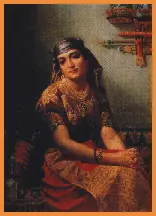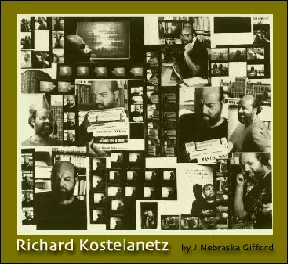

Sephardic Culture
Sephardic Halakha As an Alternate Paradigm for Authentic Jewish Continuity
by Zvi Zohar
Two Reviews of "Morocco," the New Show at the Jewish Museum
by Habiba Boumlik/Dalia Kandiyoti + Holland Cotter (NY Times)
Special Middle East
Middle East: The Trauma Vortex
by Gina Ross
Right of Return Panel Challenges Assumptions
by Susan Chatman
The Janus Face of Israeli Democracy
by Michael Dahan
Cable Technology Points Only To The West
by Jonathan Schorsch
Controversy: Edward Said's "Double Standards" and
Double Standards: the Other Side of the Coin
by Zvi Zohar
Notes From the Levantine Project
by Jordan Elgrably
Oct/Nov Calendar
Inside News
Sephardi Culture
Sephardic
Halakha As an Alternate Paradigm for Authentic Jewish Continuity
Zvi
Zohar
Shalom Hartman Institute
Jerusalem
Introduction
In this article, I shall attempt to characterize the response of Sephardic rabbis to the challenges of modernity. My general thesis is that their response is different, in significant and interesting ways, from that of their Ash-The claim of the Orthodox to be no more than the guardians of
kenazic-European peers. Moreover, the modalities of this "difference'" suggest valuable alternate paths of Jewish authenticity, beyond the denominational schism that has shattered Occidental Jewish life in modern times.
The Coalescence of Orthodoxy in Europe
In the 18th and 19th centuries, European Jewry underwent processes of Haskalah ("Enlightenment") and secularization, accompanied by intense internal social and ideological tensions. Many rabbis felt that these
changes threatened the very existence of traditional Judaism and, in order to counter these threats, they formulated a counter-strategy which became known as "Orthodoxy." Understandably, Orthodox leaders declared that they were simply preserving and continuing the ways of life and the beliefs of pre-modern Judaism. However, such contentions are at variance with socio-historical reality, writes Jacob Katz:
continue here
"Morocco":
the New Show at the Jewish Museum
by Habiba Boumlik and Dalia Kandiyoti


Photo of Esther Play for Purim,Tanger, 1914
Hamsas, amulets against "the evil eye"
The long-anticipated show on Morocco is finally up and running at the Jewish Museum. While the organizers of the exhibit, including Dr. Vivian Mann, are frank about their use of Orientalist imagery, "Morocco" may well represent a lost opportunity. One might have anticipated a different kind of show, displaying both the folkloric and exotic aspects that are the focus of this exhibit, but also including a range of creative and intellectual works of Moroccan Jewry. Dedicated largely to artifacts and displaying few traces of modernity, this exhibit emphasizes the timeless, instead of the continuous culture of Moroccan Jewry.There are over 180 objects displayed relating to various aspects of religious, artistic, and economic life. The brief historical context offered in the first room underlines the close ties between Jews and Muslims; of special notice is the declaration of King Mohamed V, who refused to apply certain Vichy laws in Morocco; when asked during WWII by a Nazi commander, the monarch replied, "We have no Jews in Morocco. Only Moroccan citizens." In this room one also finds a menorah dating back to the 4th or 5th century, a testimony to the length of Jewish settlement in Morocco.
continue reading the review here
Special Middle East: A Therapeutic View
The
Trauma Vortex in Action Again
by Gina Ross
Two political opportunistic maneuverings by Sharon and Arafat just set the stage for two nations and possibly the Arab world, to get caught again in the psychological " trauma vortex "and its destructive path. The trauma vortex is in action when any present incident, however remotely connected to an old trauma, reopens deep unresolved wounds and throws a person into the same overwhelming emotional turmoil--as if the trauma were still happening in the present. It has a life of its own. Once engaged, it is very difficult to stop it.
When the trauma vortex takes over, its effects are powerfully negative.
It creates disconnection from other people. Disconnection of peoplesí emotions from their capacity to reason. Disconnection from the ability to manage oneís internal emotional life; from the ability to keep track of the larger picture; from the ability to control oneís actions. There is extreme polarization of feelings, thoughts, and principles. Hatred and intolerance take over immediately. There is a sense of hyper vigilance and a sense of on-going danger, as well as paranoia. There is a flooding of memories of every past injury, insult, humiliation, losses, fears and hatreds as if they were in the present.
There is a dimming of the idea of the future and a lack of capacity to function appropriately in the present.
Violence and revenge seem like the only viable reactions; the only seemingly visible way of seeking justice.
Right
of Return Panel Challenges Assumptions
by Susan Chatman
Discussions of the Palestinian "Right of Return" have increased in recent weeks as a result of the outbreak of violence. These discussions have almost entirely taken place outside the mainstream media, since the U.S. government's pro-Israel stance leaves little room for dialogue. As an anecdote to this lack of balance, and to bring attention to the "No Return, No Justice, No Peace" marches scheduled across the U.S. on September 16, the American Arab Anti-Discrimination Committee put together a distinguished panel to discuss the historical and personal context for the legitimacy of the Palestinians' demands. In addition, the panel was supplemented by a self-proclaimed "Arab Jew" to discuss the Mizrahi Jewish perspective.On September 10, the panel met in Orange County, at the Unitarian Church, and consisted of Dr. Elaine Hagopian, Nader Abuljebain, and Jordan Elgrably, with moderator Michel Shehadeh. "This is not a debate with balanced representation," said Shehadeh at the outset. "This is intended to defend and raise awareness of the Palestinians' Right of Return."

The
Janus Face of Israeli Democracy
by Michael Dahan
I can only speak of how I view things, as an Israeli and a human being,
and how I think the Israeli
government should act, thus my comments are directed towards Israel. As
a political scientist the question
that I ask myself is not why the violence broke out, but why it had taken
so long to do so. Frustration has
been building for a long time on the Palestinian side - frustration about
the economic conditions in the
Palestinian National Authority (PNA), frustration with the lack of progress
in the talks, frustration directed
towards their own leadership, frustration at the continued Israeli presence
in certain areas, the continuation
of the settlements, home demolitions, Palestinian prisoners and a myriad
of other, smaller day to day
frustrations that have been growing like a festering wound over the past
months.
continue here
Cable
Technology Points Only to the West
by Jonathan Schorsch
One hears repeatedly about the ways in which Sephardi and Mizrahi Jews are ignored in Israel by "the establishment," i.e., the Ashkenazic, western-oriented powers-that-be. In response, many people overlook or downplay such discrimination or attribute it to the pragmatic necessities of Israel's difficult birth pangs. But the sad fact is that not only does such discrimination continue to exist, but its source, at least these days, is purely ideological. Recently, and quite unintentionally, I gained an education in the vicissitudes of Israeli "establishment ideology" when I subscribed to Israel's cable TV provider, Arutzei Zahav.
by Edward Said
The US celebrates Serb freedom, but the case of the Palestinians
is, apparently, different
Special report: Israel and the Middle East
Edward Said
Guardian
Thursday October 12, 2000
Misreported and hopelessly flawed from the start, the Oslo peace process
has
entered its terminal phase - of violent confrontation, disproportionately
massive Israeli repression, widespread Palestinian rebellion and great
loss
of life, the vast majority of it Palestinian. Ariel Sharon's visit to Haram
al-Sharif on September 28 could not have occurred without Ehud Barak's
concurrence. How else could the paunchy old war criminal have appeared
there with a thousand soldiers guarding him? Barak's approval rating rose
from 20% to 50% after the visit, and the stage seems set for a national
unity government ready to be still more violent and repressive.
continue here
Double Standards: the Other Side of the Coin
by Zvi Zohar
The article by Edward Said is an exercise in free speech, untrammeled by any need to relate to facts and values in an unbiased way. In other words, Said plays freely with history, morals and truth, in order to support his personal ideology.First: some general remarks: moral judgments are relevant to contemporary times, and problematic with regard to the past. Was it moral for Muhammad to treat the Jews of Arabia as he did? Was it moral for the armies of Islam to conquer vast territories across the globe? Was it moral for them to discriminate between peoples on the basis of religion? Was it moral for them to keep slaves? To control their subjects by using Mamluks (pagan and Christian children purchased from slave dealers and brought up to be private armies of princes and rulers? Obviously, to now condemn such practices as immoral is not the same as to say, that AT THE TIME they were so considered, or that those who did so were evil.
Notes From the
Levantine Project:
Hatred is Not a Four-Letter Word
by Jordan Elgrably
LOS ANGELES---Recently, at the close of Yom Kippur, considered the holiest day of the Jewish year, an educated and attractive woman of perhaps 30 or 40, turned to the others breaking the fast and said that in Hebrew "the only good Arab is a dead Arab." We were all discussing the unfortunate events of the past few weeks; some of us expressed empathy with the rage and frustrations of occupied Palestinians, who feel cheated by the peace process; others sided vociferously with the Israelis. An Egyptian Jewish
friend of mine and I were shocked by her comment, in part because she was of Tunisian Jewish descent, for we often find that Jews of the Arab/Muslim world are more progressive in their relationships with Arabs (contrary to the reigning Western belief that most Mizrahi/Sephardi Jews are rabidly anti-Arab).How, I reasoned with her, could we ever hope to make any progress toward peace and coexistence, if we continued to harbor what are stereotypical biases against our potential friends? "Some of my best friends are Saudi Arabians," she countered, without blinking. I asked: "And how would you feel to know that right now, this very minute, they are saying that they can never trust Jews? Wouldn't you feel betrayed?"
Oct/Nov
Calendar
click Calendar for very latest
 Open
through Feb. 11 N.Y.Morocco: Jews and Art
in a Muslim Land, Jewish Museum,
5th Ave. at 92nd St. Exhibit, which runs through Feb. 11, 2001, focuses
on Morocco's multicultural art and traditions and the history of Jewish
life in Morocco for over 2,000 years. More than 180 objects, among them
Orientalist paintings by well-known European artists such as Eugene Delacroix
and Alfred Dehudenocq; beautiful jewelry and ceremonial objects of silver
and gold; sumptuous textiles and costumes; and 19th and 20th century photographs
will be on display. "The exhibition will depict a culture frm the vantage
point of 'outsiders'---Orientalist painters and photographers---and from
the 'insider's' perspective of the objects Jews created for themselves
and others. Vistors will be encouraged to consider the impact of Muslims,
Jews, and Europeans on Moroccan cultureóa venerable culture that developed
from Berber traditions." 212-423-3200.
www.thejewishmuseum.org
Open
through Feb. 11 N.Y.Morocco: Jews and Art
in a Muslim Land, Jewish Museum,
5th Ave. at 92nd St. Exhibit, which runs through Feb. 11, 2001, focuses
on Morocco's multicultural art and traditions and the history of Jewish
life in Morocco for over 2,000 years. More than 180 objects, among them
Orientalist paintings by well-known European artists such as Eugene Delacroix
and Alfred Dehudenocq; beautiful jewelry and ceremonial objects of silver
and gold; sumptuous textiles and costumes; and 19th and 20th century photographs
will be on display. "The exhibition will depict a culture frm the vantage
point of 'outsiders'---Orientalist painters and photographers---and from
the 'insider's' perspective of the objects Jews created for themselves
and others. Vistors will be encouraged to consider the impact of Muslims,
Jews, and Europeans on Moroccan cultureóa venerable culture that developed
from Berber traditions." 212-423-3200.
www.thejewishmuseum.org
Oct 24 N.Y. Vocalist
Mossa
Builder stars in the International House of Trance
IHOT concert at the Knitting Factory, Oct. 24, 8 pm. The
 mix
of Brazilian, Sephardic, Middle Eastern and jazz includes performers Hector
Martignon, Alirio Ferreira, Benny Koonyevsky, Rita Silva, Ze Mauricio,
Jamal Zuber, Said Hakmoun and with special guest Mainha d'Oxhum. 74 Leonard
Street, Main Space. Tix $12.
mix
of Brazilian, Sephardic, Middle Eastern and jazz includes performers Hector
Martignon, Alirio Ferreira, Benny Koonyevsky, Rita Silva, Ze Mauricio,
Jamal Zuber, Said Hakmoun and with special guest Mainha d'Oxhum. 74 Leonard
Street, Main Space. Tix $12.
Oct 25 L.A. Conversations on Roots & Identity 2 raises issues of cultural roots, religious practice and affiliation, literary explorations and adjusting to a bicultural, American and Middle Eastern identity. Part two of the new series in L.A. will feature Iran. Conversations 3 on November 29 will feature Libya. RSVP to 323-650-3157
Oct 29 N.Y. 10-2
pm The Minstrel and the Storyteller with Gérard Edery and
Peninnah Schram This unique duo
presents a workshop on the Jewish Life Cycle in Story and Song at the 92nd
St. Y, 1395 Lexington Ave. Explore the stories and songs that celebrate
birth, brit and naming, Bar/Bat Mitzvah, love, courtship and marriage.
Retrieve family stories and songs, and discover new ones, through creative
dramatic exercises and interpersonal dialogue. Hear and learn folktales
and songs relating to the life cycle of the Jewish folk tradition. These
are our legacies to pass on to the next generation. For more information
and registration please call 212-996-1100. To listen to sound
clips go to www.mp3.com/GerardEdery.

Peninnah Schram, an internationally
known storyteller, is known for her elegant and dynamic way of telling
stories. She performs at many festivals/conferences and also teaches workshops.
She is the author of six books of Jewish folktales, including Jewish
Stories One Generation Tells Another. In 1995, Peninnah was a recipient
of the prestigious Covenant Award for Outstanding Jewish Educators and
also received the 1999 National Storytelling Membership Associationís
Circle of Excellence Award. Gerard Edery, an internationally known
singer, guitarist, composer, and recording artist, has been featured in
major concert halls and festivals throughout the world. He has eight CD
releases on the Sefarad Records label and two more on the way. Gerard brings
a vibrant classically-trained baritone and the skills of a virtuoso guitarist
to his original compositions and intricate arrangements. Widely regarded
as one of the leading interpreters of Sephardic Song, he was honored with
the 1997 Sephardic Musical Heritage Award.
Nov. 9, D.C. 7:00 pm Hussein Al-Athamy in the USA and the Tchalghi Baghdadi The guru of Iraqi Maqaam singing, Hussein Al-Athamy is coming to the USA to tour Cambridge, MA and Washington, D.C. Mr. Al-Athamy's powerful tenor voice and his mastering of the most challenging form of Arabic singing, the Iraqi Maqaam, make him currently the best performer of classical music in the Arab world and the non-Arab Middle East. Al-Athamy is accompanied by master Oud player, Ali Al-Imam (from the musical school of Munir Bashir) and the young talented (female) Jawza player, Dalia Yakob. Sponsored by the Institute of Near Eastern & African Studies (INEAS), Mesopotamia Cultural Society, Royal Jordanian Airlines. Co-sponsored by: American-Arab Anti-Discrimination Committee (ADC), Geogretown University Contemporary Arab Studies, Frances & Mitchell Kurker, Linda & George Michael Georgetown University Intercultural Auditorium, Thurs., November 9th at 7:00 pm. Ticket Prices: $20, $35, $50. For reservations in DC, contact Feryal at: American-Arab Anti-Discrimination Committee (ADC). Tel 202-244-2990.

Richard Kostelanetz, multimedia artist, writer and critic, is a Fellow
of Ivri-NASAWI. Visit his new website at www.richardkostelanetz.com.
To inquire about membership in Ivri-NASAWI, click here.
*Ivri-NASAWI lists
Sephardi/Mizrahi events produced by other organizations.
Please be sure to
call in your programs with 30 days advance
notice whenever possible.
To inquire about our affordable
web rates, call (323)
650-3157 or email
[home] [org] [news] [calendar] [membership] [links] [open tent] [past] [poetry]